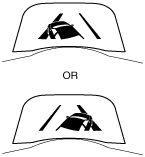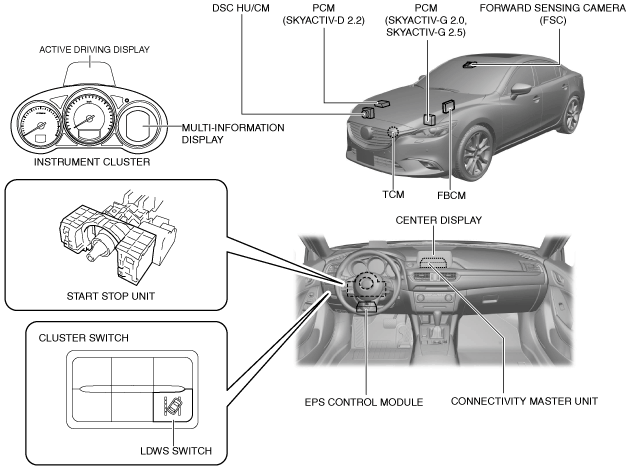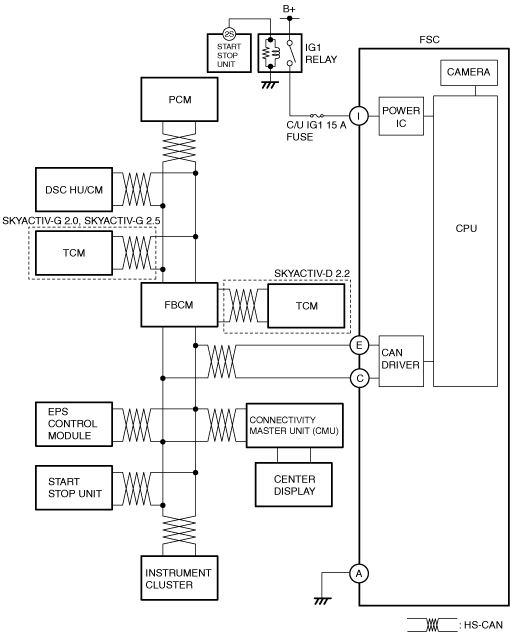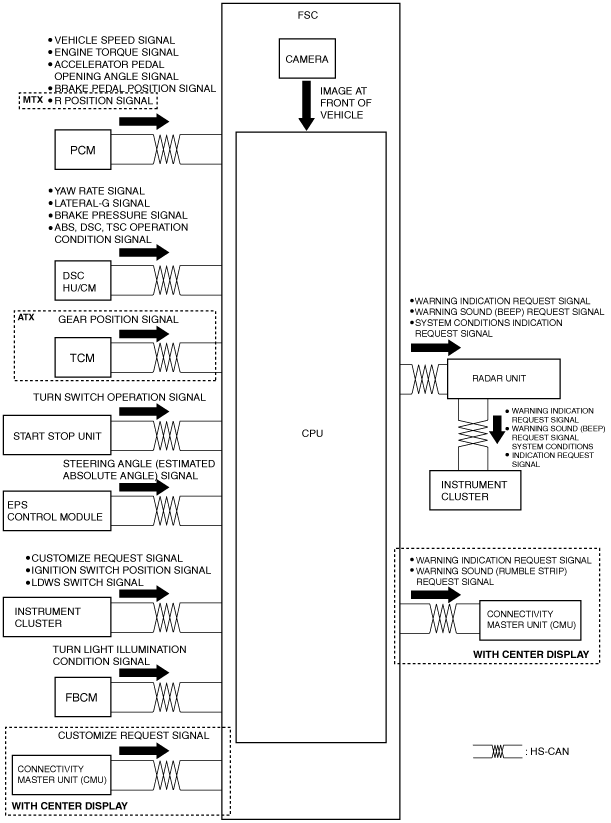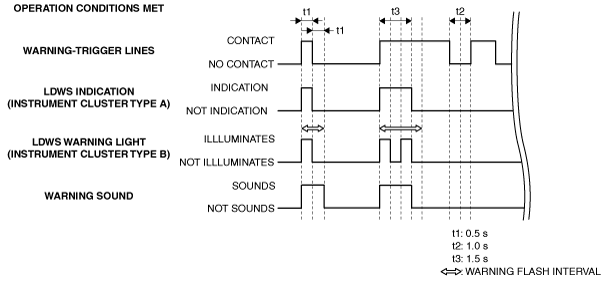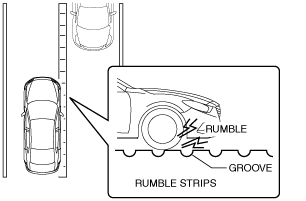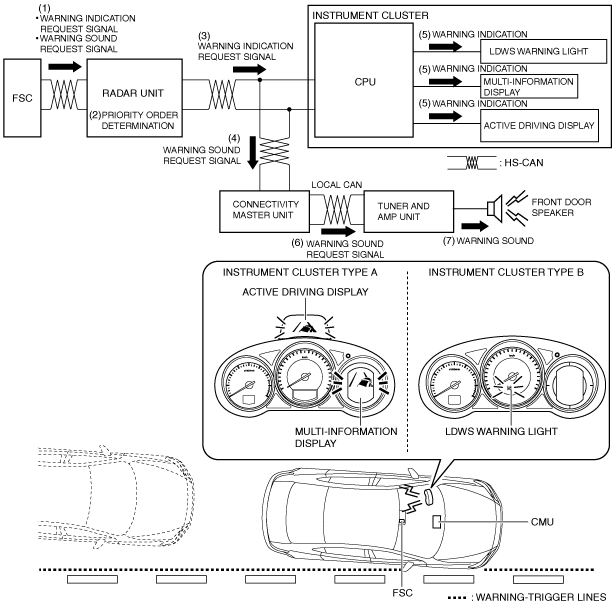1. If the FSC determines that the vehicle has contacted a warning-trigger line, it sends (1) a warning sound request signal and a warning indication request signal to the radar unit.
2. When the radar unit receives the warning sound request signal and the warning indication signal from the FSC, it determines (2) the priority order of the warning based on presence/non-presence of warning request from the MRCC system or the smart brake support (SBS).
3. If the radar unit determines that the priority order of the warning sound request signal and the warning indication signal from the FSC is the highest, it sends the warning indication request signal (3) to the instrument cluster, and the warning sound request signal (4) to the connectivity master unit (CMU).
4. When the instrument cluster receives the warning indication request signal from the radar unit, it flashes (5) the LDWS warning light(instrument cluster type B)/displays (5) the warning screen in the active driving display/multi-information display.(instrument cluster type A).
5. When the connectivity master unit (CMU) receives the warning sound request signal from the radar unit, it sends (6) the warning sound request signal to the tuner and amplifier unit (TAU).
6. When the tuner and amplifier unit (TAU) receives the warning sound request signal from the connectivity master unit (CMU), it stops output from either the front left or right door speaker and outputs (7) a rumble strip sound.




